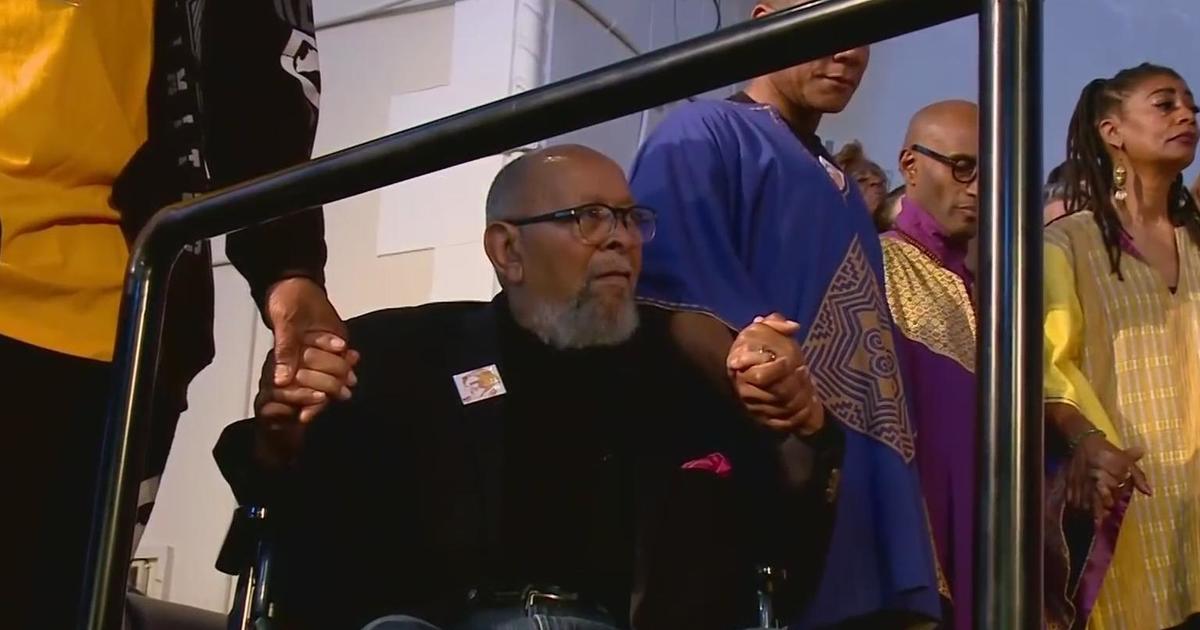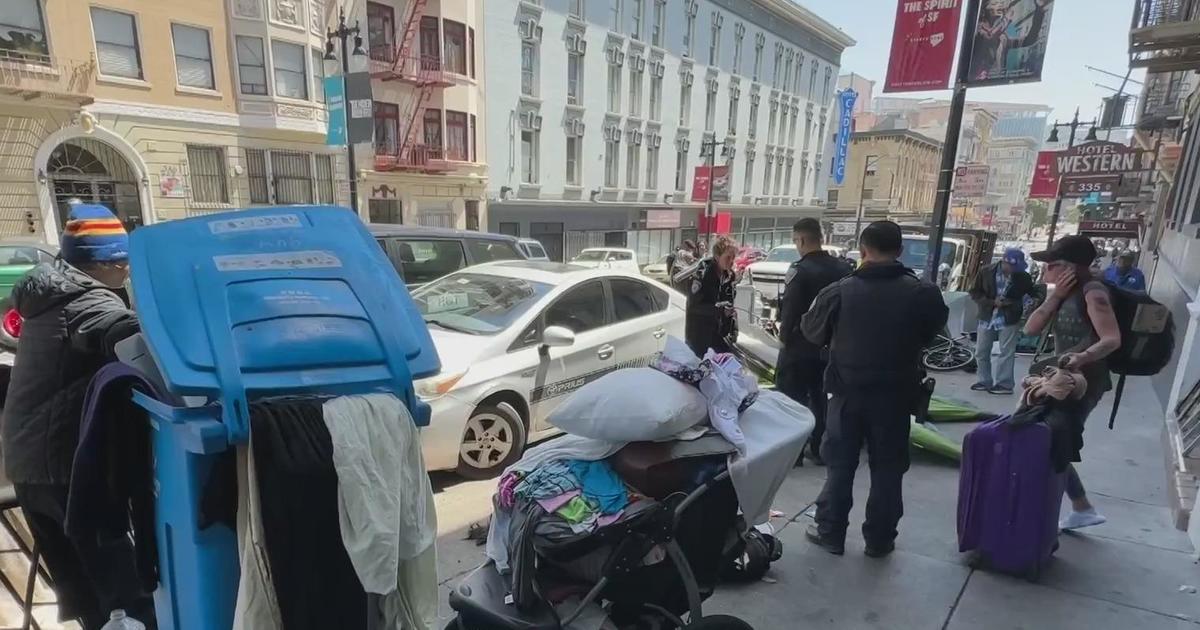Coronavirus Pandemic: San Francisco Moves 874 Homeless Into Hotel Rooms
SAN FRANCISCO (CBS SF) -- The city of San Francisco detailed its plans to house vulnerable homeless residents on Wednesday, a day after supervisors approved an emergency ordinance that would require the city to house all homeless residents, regardless of age or health status.
During a news conference at the city's Emergency Operations Center, Human Services Agency Director Trent Rhorer said so far, the city has secured 2,151 hotel rooms across 14 hotels to protect homeless individuals against the coronavirus.
Of those rooms, so far 1,271 will be reserved for homeless people in the shelter system and single-room-occupancy hotel residents who either have tested positive for COVID-19 or may have been exposed, as well as homeless individuals in the shelter system or on the streets who are over 60 or have underlying health conditions.
The rest of the hotel rooms will be for city employees who work with the public daily and frontline workers who need to quarantine.
A total of 874 homeless residents belonging to the vulnerable population have been placed as of Wednesday, Rhorer said.
"We have completed the process of identifying and offering hotel rooms for our vulnerable persons in our shelter system; these are single adults who are age 60 and above (and) who are vulnerable. I can say that not all of them have accepted our offer to move into hotel rooms. In those cases, we will continue to reinforce social distancing in our shelters, the hand washing protocols and all the other safety measures," he said.
He estimated the city will need about 7,000 hotel rooms for vulnerable homeless residents, based on data of vulnerable people in both shelters and on the streets.
"We continue to reevaluate those numbers on an ongoing basis and adjust our needs accordingly," he said.
On Tuesday, the city's Board of Supervisors unanimously approved an emergency ordinance that would require the city to secure at least 8,250 hotel rooms, including 7,000 reserved for the city's homeless, regardless of their age, health status, or whether they're on the streets or in the city's shelter system. Under the emergency ordinance, the rooms must be acquired by April 26.
Supervisors Shamann Walton, Matt Haney, Hillary Ronen, and Dean Preston jointly introduced the legislation prior to an outbreak at the Multi-Service Center South homeless shelter where more than 100 have become infected with the coronavirus. The supervisors, along with homeless rights advocates, have criticized the city's continued use, during the pandemic, of congregate settings like shelters where they say the virus is more likely to spread.
Breed on Wednesday responded to the supervisors' emergency ordinance, saying it was imperative to only promise what the city can deliver. She also blasted Supervisor Ronen for alleging on Twitter on Sunday that the University at California at San Francisco had offered to test MSC-South residents and staff after the outbreak was reported last week, but the city refused.
"That was absolutely false. And it was so irresponsible in light of a pandemic, when we are dealing with life or death, to spread false information like that is really irresponsible and very tragic at this time especially," she said. "The fact is, we work hand-in-hand with UCSF."
She clarified that although UCSF has the capability of running the tests, there is a current nationwide shortage of swabs required to perform the tests.
Breed continued to cite staffing as a major challenge in securing more rooms for the general homeless population, many of whom have addiction or mental health problems. Necessary staff would include clinicians, nurses, and city employees who have been activated as emergency workers and who would need training. Additionally, other services like meals, laundry and cleaning is needed, she said.
"Would we like to open the doors of every hotel room and give everybody a place to stay? Of course, we would but it's not that easy," she said.
"People who are unfortunately unhoused and some who suffer from substance abuse disorders and mental illness, those challenges that these people are dealing with, they don't just go away because there's a pandemic.
"And so, when we look at hotels... we need to make sure that the clinicians and the city staff, who have never worked with this population before, that they are trained, prepared and able to provide them with the resources and support that they need," she said.
© Copyright 2020 CBS Broadcasting Inc. and Bay City News Service. All Rights Reserved. This material may not be published, broadcast, rewritten or redistributed.



